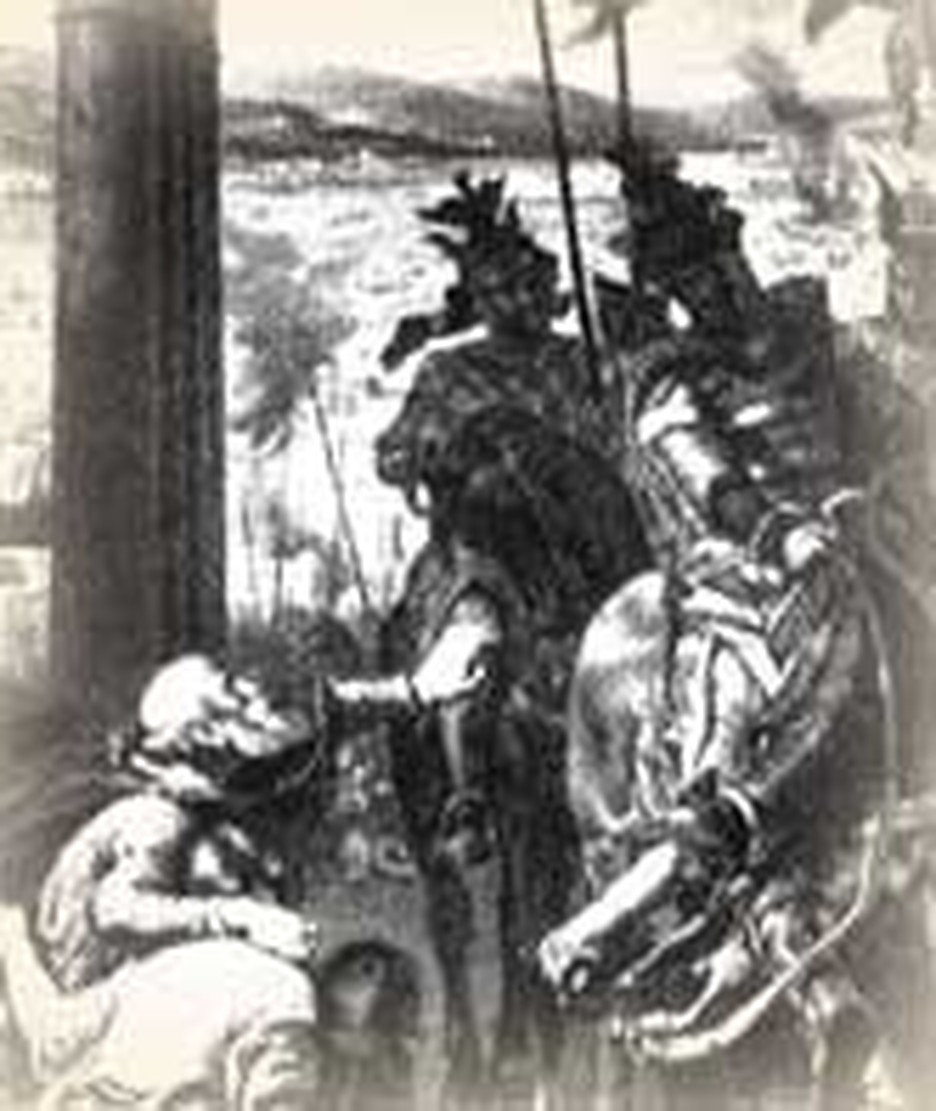
Saladin's Revenge
War is a lot like a gang fight. And woe to the rival who steps on his enemy's turf! In the twelfth century, the gang fight was between Christian Crusaders and Muslim Saracens. Chatillon, a cruel Crusader, massacred several dozen Muslim pilgrims in cold blood just because they stepped onto his turf. This so maddened Sultan Saladin of the Saracens that he vowed revenge.
Saladin had become Sultan of Egypt in 1174 through a coup. After conquering Syria and Damascus, he led the Saracens in victory over the Crusaders on the plain of Tiberias in 1187. With his own scimitar, he kept his promise and slew Chatillon. The rival gangs next "rumbled" over Jerusalem. On this day, October 2, 1187, the Muslim general captured the holy city. Muslims immediately clambered up and removed the cross that the Crusaders had mounted on the cupola of the Dome of the Rock. According to an eyewitness, the combined roar of the Muslims shouting "Allah is greatest!" and the groans of the defeated Crusaders, watching the fall of their sacred symbol, was so loud it shook the ground.
Pictured Below: Christians before Saladin

Saladin's Reign of Jerusalem
Saladin shamed the ruthless Crusaders by treating the city with kindness and keeping every promise he made to its people. Islam controlled Jerusalem from that day until the 20th century.
Saladin hoped to hold all of Palestine. However, Crusaders Richard Lionheart and Philip Augustus of France soon recaptured Acre. Richard Lionheart defeated the Saladin again, dashing Saracen hopes of total control. The Lionheart perpetrated atrocities to equal the other Crusaders. Yet his personal strength and valor made him legendary. He is said to have struck down four hundred men by himself in one battle alone. Faced with such a foe, Saladin finally agreed to a treaty that permitted Europeans to hold ports on the Palestine coast. Christians were allowed to make pilgrimages to sacred shrines in Jerusalem.
Saladin's courage, justice and moderation were rare in that age and have won him lasting respect in the West. Christians thought they were justified in launching the crusades. They argued that their actions were defensive-- preemptive strikes to keep Islam from renewing its attacks on Europe--and that they were just taking back turf the Saracens had snatched earlier. Whether their arguments are valid or not, one thing is certain: They did not live up to Christ's teachings about love after they had conquered the Middle East. What a different tale the Crusaders might have told if they had at least lived up to Saladin's code, even it they were unable to abide by the law of love!
Pictured Below: A portrait of Saladin at Jerusalem

Bibliography:
- "Crusades." The Oxford Dictionary of the Christian Church. Edited by F. L. Cross and E. A. Livingstone. Oxford, 1997.
- Durant, Will. The Age of Faith; A history of Medieval civilization--Christian, Islamic and Judaic--from Constantine to Dante: AD 325 - 1300. The Story of Civilization, Part IV. New York: Simon and Schuster, 1950.
- Hindley, Geoffrey. Saladin. London: Constable, 1976.
- Lane-Poole, Stanley. Saladin and the Fall of the Kingdom of Jerusalem. Beirut, Khayats, 1964.
- Treece, Henry. The Crusades. New York: Mentor, 1972.
- Wirth, Ulbrecht. Balkan, Der. Stuttgart: Union Deutsch Berlagsgefellschaft, 1914. Source of the image.
Last updated April, 2007.


